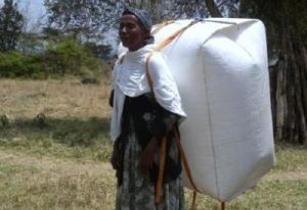Representatives of the German and Ugandan renewable energy sector were able to successfully test the jointly developed solutions for electricity and biogas supply in Uganda
The framework for the cooperation was provided by the lab of tomorrow, which the German International Co-operation (GIZ) GmbH implements on behalf of the Federal Ministry for Economic Cooperation and Development (BMZ). As one of three teams, “Agali Awamu” has been selected for the support of the lab of tomorrow to further develop its business model as part of the pilot phase.
The business idea of the team “Agali Awamu” was formed during the innovation workshop of the lab of tomorrow. Christof Langguth, sales representative of PlanET Biogastechnik GmbH from Vreden, took over the introduction for the group and pointed out the opportunities and problems from the point of view of the German biogas technology supplier in Uganda.
Langguth commented, “For medium and large biogas plants, off-grid solutions are needed, in which fossil-generated energy can be replaced by electricity from a biogas plant.”
On the other hand, micro biogas plants, eg filled with the waste of a few cows or pigs have been in operation in Uganda for many years, but due to the relatively high investment costs of around US$1195.85, similar to liquefied petroleum gas or electricity, is unaffordable to much of the rural population.
Therefore, wood is still used for cooking in rural areas and charcoal is used in urban areas. This contributes to de-forestation which fuels climate change. In addition, the wood collection, which is done almost exclusively by women and girls, can be very time-consuming and sometimes dangerous. Cooking on traditional ovens with firewood is also inefficient and extremely damaging to health.
“Agali Awamu” developed a concrete project proposal, the realisation of which was subsequently supported by the lab of tomorrow. For this purpose, a biogas plant with a volume of 10 cu/m was built in a village near the sugar factory Kakira Sugar Limited. For the prototype, five families of the village bring the daily animal manure and their household waste to the centrally built biogas plant, to which a small cattle farm is also attached.
PlanET Biogastechnik signed a MoU to support the project remotely. The main focus is on opportunities to build commercial biogas plants with power generation in East Africa in the long term through this entry into the market.





















